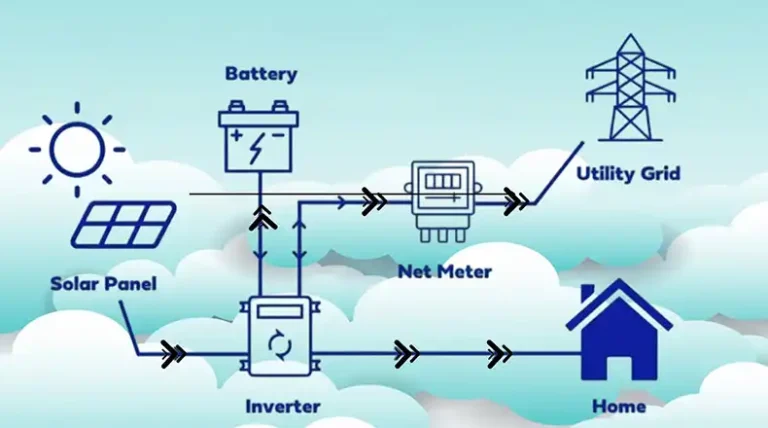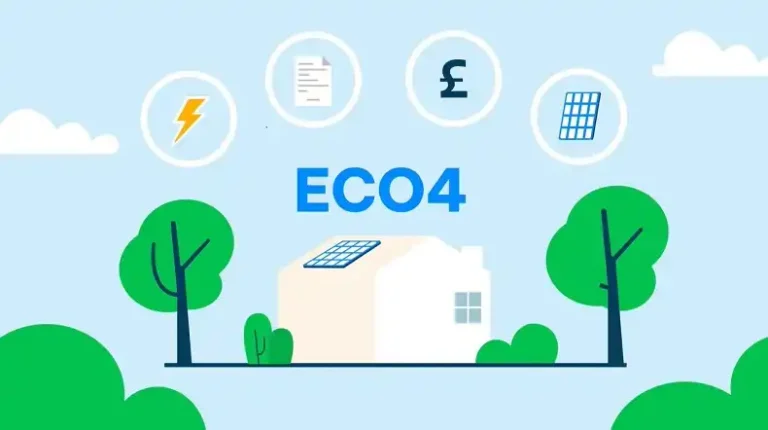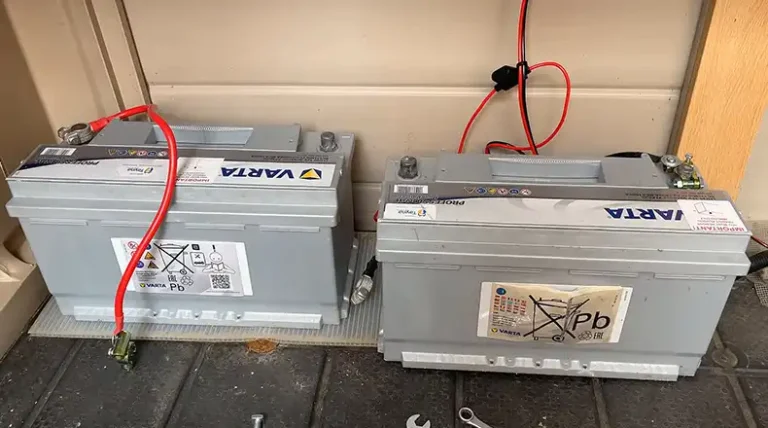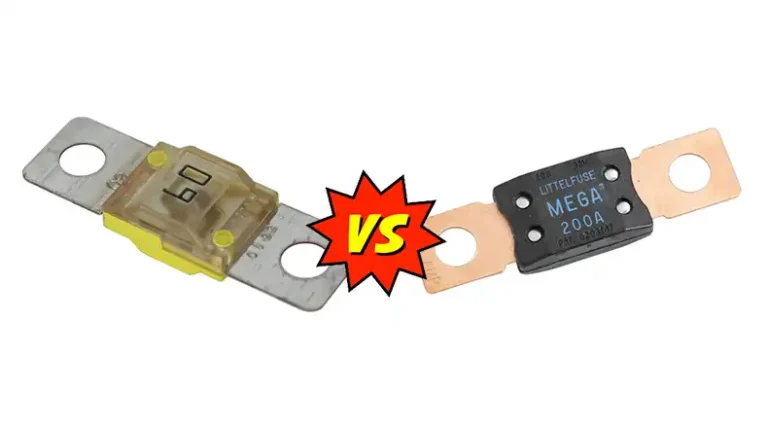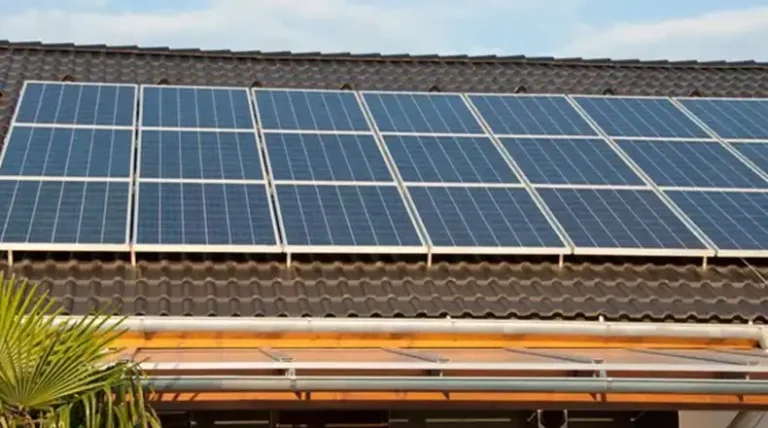Solar Energy Solutions For Small Businesses

In today’s competitive business landscape, small businesses are constantly seeking innovative ways to cut costs, boost sustainability, and gain a competitive edge.
Solar energy has emerged as a game-changing solution that addresses all these needs. By harnessing the power of the sun, small businesses can significantly reduce their energy expenses, minimize their environmental impact, and showcase their commitment to sustainability.
The most crucial aspect for small businesses considering solar energy is the substantial financial incentives available, particularly the Federal Investment Tax Credit (ITC).
This program offers a significant tax credit for the cost of installing solar panels, making the initial investment more manageable and accelerating the return on investment.
As we delve into the world of solar energy solutions for small businesses, we’ll explore how this clean, renewable power source can transform your operations, bottom line, and public image.
Financial Incentives for Small Businesses
When it comes to adopting solar energy, small businesses have access to a variety of financial incentives that can significantly reduce the initial investment and accelerate the return on investment.
These incentives make solar energy an increasingly attractive option for businesses of all sizes.
1. Federal Investment Tax Credit (ITC)
The Federal Investment Tax Credit (ITC) is one of the most powerful incentives available to small businesses looking to go solar. This program allows businesses to deduct a percentage of their solar installation costs from their federal taxes.
Currently, the ITC offers a 30% tax credit for solar systems installed between 2022 and 2032. This means that if your solar installation costs $100,000, you could potentially receive a $30,000 tax credit.
It’s important to note that this credit is set to decrease to 26% in 2033 and 22% in 2034, so acting sooner rather than later can result in greater savings.
To take advantage of the ITC, businesses must own their solar system outright (rather than leasing it) and have sufficient tax liability to benefit from the credit. Consult with a tax professional to understand how the ITC could benefit your specific business situation.
2. Net Metering
Net metering is another valuable financial incentive for small businesses that install solar panels. This program allows businesses to earn credits for excess electricity generated by their solar system and fed back into the grid.
Here’s how it works:
- During sunny days, your solar panels may produce more electricity than your business uses.
- This excess electricity is sent back to the grid.
- Your utility company provides credits for this excess electricity.
- These credits can be used to offset the cost of electricity drawn from the grid during non-solar production hours (like nighttime or cloudy days).
Net metering effectively allows you to use the grid as a giant battery, storing your excess production for later use. This can significantly reduce your overall electricity costs and improve the economics of your solar investment.
It’s worth noting that net metering policies can vary by state and utility company, so it’s important to check the specific rules in your area.
3. Property Tax Exemptions
Many states and local governments offer property tax exemptions for solar energy systems. These exemptions prevent the added value of a solar installation from increasing a business’s property taxes.
For example, if installing a solar system increases your property value by $50,000, a property tax exemption would ensure that your property taxes don’t increase based on this added value. This can result in significant long-term savings, especially in areas with high property tax rates.
Check with your local tax assessor or a solar installer familiar with local incentives to see if property tax exemptions are available in your area.
4. Solar Loans and Financing Options
To help businesses manage the upfront costs of solar installation, many financial institutions offer specialized solar loans. These loans are designed specifically for solar projects and often come with favorable terms.
Some benefits of solar loans include:
- Lower interest rates compared to traditional business loans
- Longer repayment terms, which can help keep monthly payments manageable
- The ability to own your solar system outright, allowing you to take advantage of tax incentives like the ITC
Additionally, some solar installers offer their own financing options or can connect you with lending partners. These can include options like solar leases or power purchase agreements (PPAs), which can provide a path to solar with little to no upfront cost.
Environmental Benefits
While the financial incentives of solar energy are compelling, the environmental benefits are equally important, especially for businesses looking to reduce their carbon footprint and appeal to environmentally conscious consumers.
1. Reduced Carbon Footprint
One of the most significant environmental benefits of solar energy is the reduction in carbon emissions. Traditional electricity generation, often relying on fossil fuels like coal and natural gas, is a major contributor to greenhouse gas emissions.
By switching to solar power, your business can dramatically reduce its carbon footprint. Consider these facts:
- A typical solar panel system can offset about 3-4 tons of carbon emissions each year.
- Over its lifetime, a solar panel system can prevent hundreds of tons of carbon dioxide from entering the atmosphere.
- Solar energy produces no direct emissions during operation, making it one of the cleanest forms of energy available.
2. Renewable Energy Certificates (RECs)
In addition to directly reducing your carbon footprint, solar energy can provide another environmental benefit through Renewable Energy Certificates (RECs).
RECs are tradable, non-tangible energy commodities that represent proof that 1 megawatt-hour (MWh) of electricity was generated from a renewable energy resource.
When your solar panels generate electricity, you can earn RECs. These can be kept to demonstrate your commitment to renewable energy, or they can be sold to other businesses or utilities that need to meet renewable energy requirements.
3. Positive Public Image
In today’s market, consumers are increasingly environmentally conscious and often prefer to support businesses that demonstrate a commitment to sustainability.
By adopting solar energy, your business can enhance its public image and appeal to this growing demographic. Some ways solar energy can boost your public image include:
- Showcasing your solar installation to customers and the community
- Including your commitment to renewable energy in your marketing materials
- Participating in local sustainability initiatives or green business networks
This positive public image can translate into customer loyalty, increased sales, and even a competitive advantage in your market.
Overcoming Initial Costs
While the long-term benefits of solar energy are clear, the initial costs can be a significant hurdle for many small businesses. However, there are several strategies and considerations that can help overcome this challenge.
1. Power Purchase Agreements (PPAs)
Power Purchase Agreements (PPAs) offer a way for businesses to benefit from solar energy with little to no upfront cost. Here’s how they typically work:
- A third-party developer installs, owns, and operates the solar system on your property.
- Your business agrees to purchase the power generated by the system at a set rate, usually lower than what you’d pay your utility company.
- The developer is responsible for maintenance and repairs.
- After a set period (usually 15-25 years), you may have the option to purchase the system outright.
PPAs can be an attractive option for businesses that want to:
- Avoid large upfront costs
- Start saving on energy bills immediately
- Benefit from solar without taking on the responsibilities of system ownership
However, it’s important to carefully review PPA terms and compare them with other financing options to ensure they align with your long-term business goals.
2. Long-term Savings vs. Upfront Investment
When considering solar energy, it’s crucial to look beyond the initial investment and focus on the long-term savings. While the upfront costs can be substantial, the ongoing energy savings often result in a positive return on investment over time.
Consider these factors:
- Electricity costs tend to rise over time, while your solar energy costs remain stable.
- Solar panels have a long lifespan (typically 25-30 years), providing decades of energy savings.
- Maintenance costs for solar systems are generally low, especially compared to traditional energy sources.
3. Payback Period and ROI
Understanding the payback period and return on investment (ROI) is crucial when evaluating a solar energy investment. The payback period is the time it takes for the energy savings to equal the initial investment cost.
Factors affecting payback period and ROI include:
- The total cost of the system after incentives
- Your current and projected energy costs
- The amount of energy your system will produce
- Available incentives and rebates
While payback periods can vary, many businesses see payback within 5-10 years. After this point, the solar system essentially provides free electricity for the remainder of its lifespan, significantly boosting ROI.
Energy Independence and Grid Reliability
One of the most significant advantages of solar energy for small businesses is the potential for increased energy independence and improved grid reliability. These factors can provide both financial and operational benefits.
1. Reducing Reliance on Traditional Grid
By generating your own electricity, your business can significantly reduce its reliance on the traditional power grid. This shift towards energy independence offers several advantages:
- Protection Against Rate Increases: As utility rates continue to rise, businesses with solar power are less affected by these increases. Your solar system provides a hedge against future electricity price hikes.
- Predictable Energy Costs: Solar energy allows you to predict and control a significant portion of your energy costs over the long term. This predictability can be valuable for budgeting and financial planning.
- Reduced Impact of Grid Issues: When you’re less reliant on the grid, you’re less affected by grid-related problems like brownouts or transmission issues.
2. Protection Against Power Outages
While a standard grid-tied solar system will shut off during a power outage (for safety reasons), there are solutions that can keep your business powered even when the grid goes down:
- Battery Backup Systems: By adding battery storage to your solar system, you can store excess energy for use during outages. This can keep critical systems running during short-term power interruptions.
- Solar + Storage Microgrids: For businesses that require uninterrupted power, a more comprehensive microgrid system can be designed. This combines solar, battery storage, and sometimes other generation sources to create a system that can operate independently from the main grid when necessary.
3. Energy Storage Solutions
Energy storage technology has advanced significantly in recent years, making it an increasingly attractive option for businesses with solar installations. Here’s how energy storage can enhance your solar system:
- Time-of-Use Optimization: In areas with time-of-use electricity rates, storage allows you to use solar energy during peak rate times, maximizing your savings.
- Demand Charge Reduction: For businesses subject to demand charges (fees based on your highest period of electricity use), storage can help smooth out these peaks, potentially reducing these often substantial charges.
- Increased Self-Consumption: Storage allows you to use more of the energy your system produces, rather than feeding it back to the grid. This can be particularly beneficial in areas without favorable net metering policies.
- Emergency Backup: As mentioned earlier, storage provides a source of backup power during grid outages.
Marketing Benefits of Going Solar
Adopting solar energy isn’t just about reducing costs and environmental impact—it can also be a powerful marketing tool for your small business.
1. Appealing to Environmentally Conscious Customers
Today’s consumers, particularly younger generations, are more environmentally aware than ever before. Many actively seek out businesses that demonstrate a commitment to sustainability. By going solar, you’re sending a clear message about your business’s values:
- Green Credentials: Solar panels are a visible sign of your commitment to renewable energy. They serve as a constant reminder to customers that your business is taking concrete steps to reduce its environmental impact.
- Alignment with Consumer Values: Many consumers prefer to support businesses whose values align with their own. By adopting solar energy, you’re likely to attract customers who prioritize environmental responsibility.
- Local Support: In many communities, there’s a growing movement to support local, sustainable businesses. Solar adoption can help position your business as a leader in local sustainability efforts.
2. Showcasing Sustainability Efforts
Once you’ve gone solar, it’s important to effectively communicate this achievement to your customers and community. Here are some ways to showcase your sustainability efforts:
Website and Social Media: Highlight your solar installation on your website and social media channels. Share updates about your energy production, carbon offset, and the positive impact you’re making.
In-Store Displays: If you have a physical location, consider creating an interactive display that shows real-time data from your solar system. This can educate customers about solar energy while demonstrating your commitment.
Press Releases: Announce your transition to solar energy through local media. This can generate positive publicity and position your business as a local leader in sustainability.
Sustainability Reports: If your business produces annual reports, include information about your solar energy adoption and its impact on your overall sustainability goals.
Employee Engagement: Involve your employees in your solar journey. Engaged employees can become enthusiastic ambassadors for your sustainability efforts when interacting with customers.
Conclusion
As we’ve explored throughout this article, solar energy solutions offer a multitude of benefits for small businesses.
From significant financial incentives and long-term cost savings to environmental benefits and marketing advantages, solar power presents a compelling case for businesses looking to innovate, save money, and make a positive impact.
Remember, the transition to solar energy is more than just an energy decision—it’s an investment in your business’s future and our planet’s future. As you consider this important step, keep in mind that you’re not just powering your business, you’re empowering a sustainable tomorrow.

